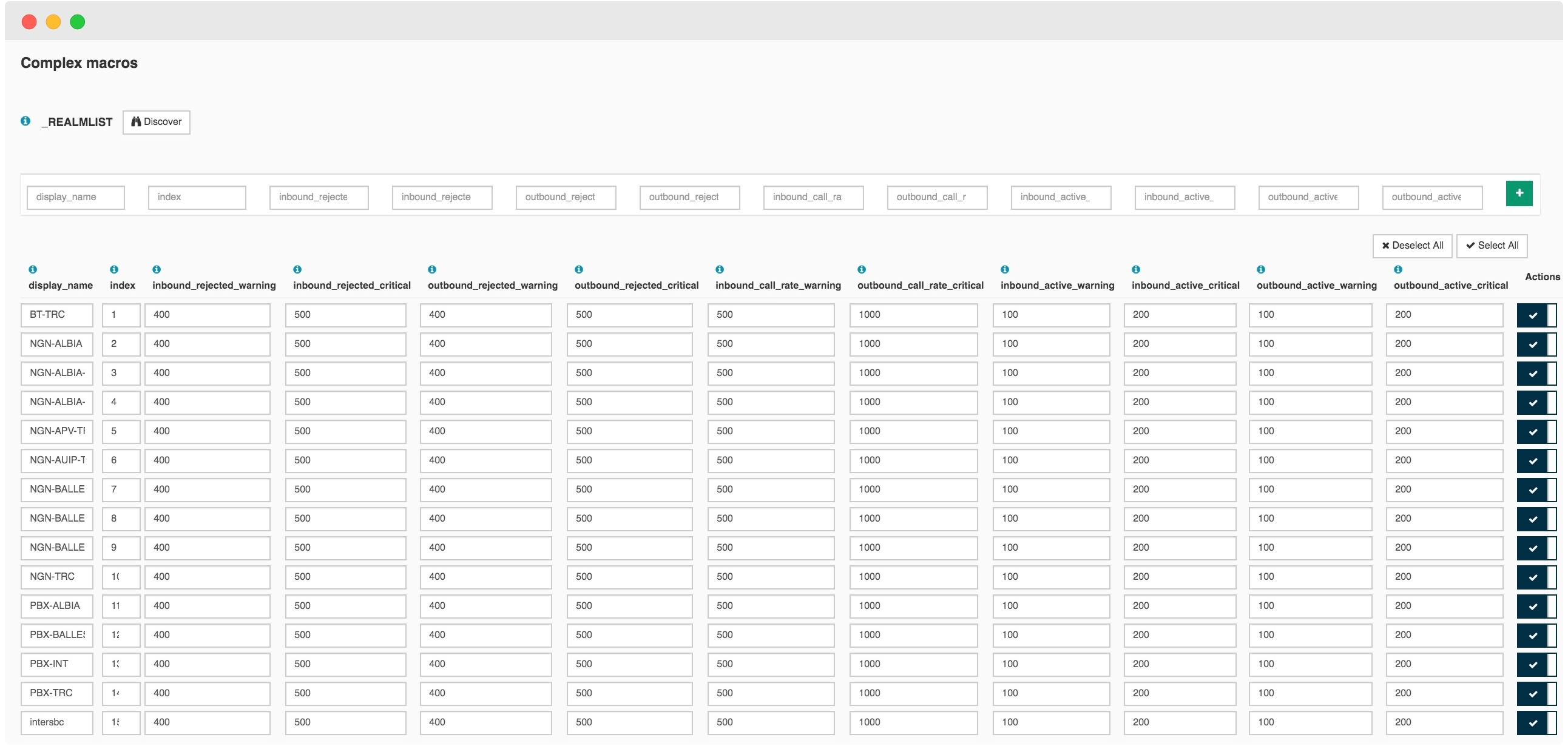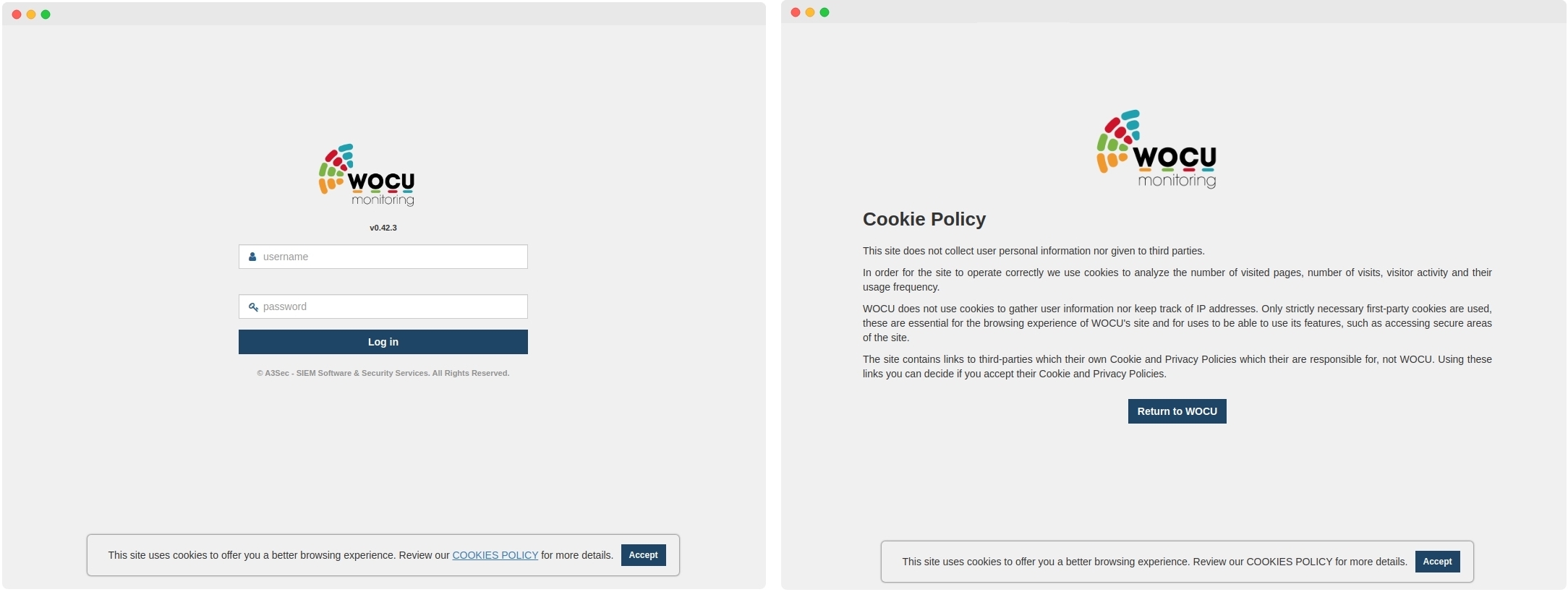Release Notes 0.43
The new version WOCU 0.43 is loaded with new features and improvements in response to the requests and suggestions of our users and the current market needs.
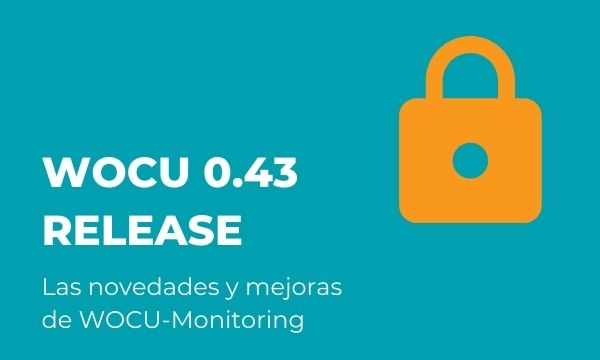
If in previous versions we worked on the traceability and access blocking, this new version brings with it new techniques and security and control measures that prevent the filtering of illegitimate sessions. With this implementation, we continue to address any risk of intrusion or malicious activity that could disrupt the stability of WOCU. It is our priority to protect and ensure the integrity of the tool
The Metrics Evolution Reports has also been further refined. Given the infinite number of metrics available in the configuration of these reports, the parent service that generates them has been included for each of the available metrics, thus avoiding possible confusion between similar metrics.
If new problem asset information was previously added to the Business Processes debug view (BP Trace), in this one we have worked on the usability of the view, redistributing the different executable actions to facilitate their interaction
A new generic banner is also included for the acceptance of the Cookies policy applied in WOCU, in order to clearly and precisely inform about the cookies used in the tool and their reason for use.
But that’s not all, new improvements have been added to the API Public Aggregator, including macros in the endpoints of Assets, providing very useful information that accurately details the Device in question.
And we continue to update our Monitoring Packs Catalogue by adding new monitoring packs and services, as well as supporting new technologies and manufacturers. As well as the refactoring of numerous WOCU components to REACT technology.
Last but not least, this release includes optimisations, improvements and bug fixes, which together make this latest version more stable and consistent.
Read on for a complete list of new features and improvements, and read the User Manual for more information if needed.
1. Optimisation of the Business Process Debugging Modalities
That the BP Trace is one of the most useful and advantageous functionalities of WOCU is an evidence, since thanks to the representation with nodes and logical relationships of Business Processes (single or nested), the user is able to analyse and locate the root cause of an anomalous monitoring state, being able to debug errors and speed up the recovery of the service
If in previous versions new information on possible problematic assets was added, in this version we have worked on the usability of the view, in particular, we have redistributed the action buttons applicable to this dynamic view
Highlights:
Hide table:
It features a new design, a dynamic bar attached to the right side of the table. Simply click along the bar and the table will immediately be hidden following the direction of the arrow inside it. To show the collapsed table again, click again on this same bar, whose arrow now points to the right.
Reload tree:
Moves to the header of the widget, located in the top right corner.
With these changes, the aim is to give greater functional coherence and dynamism to the view.
Note
More information can be found at: BP Trace.
2. New information in the Metrics selector in the Metrics Evolution Reports
WOCU’s versatility in generating reports that include various metrics means that work on this module is ongoing. In this version, work has continued on the Metrics Evolution Reports.
To avoid possible comprehension problems during report configuration, in the Metric selector, the parent service that generates the metric has been included after each metric. Consequently, the Information button (i) has been removed from the view as it is redundant.
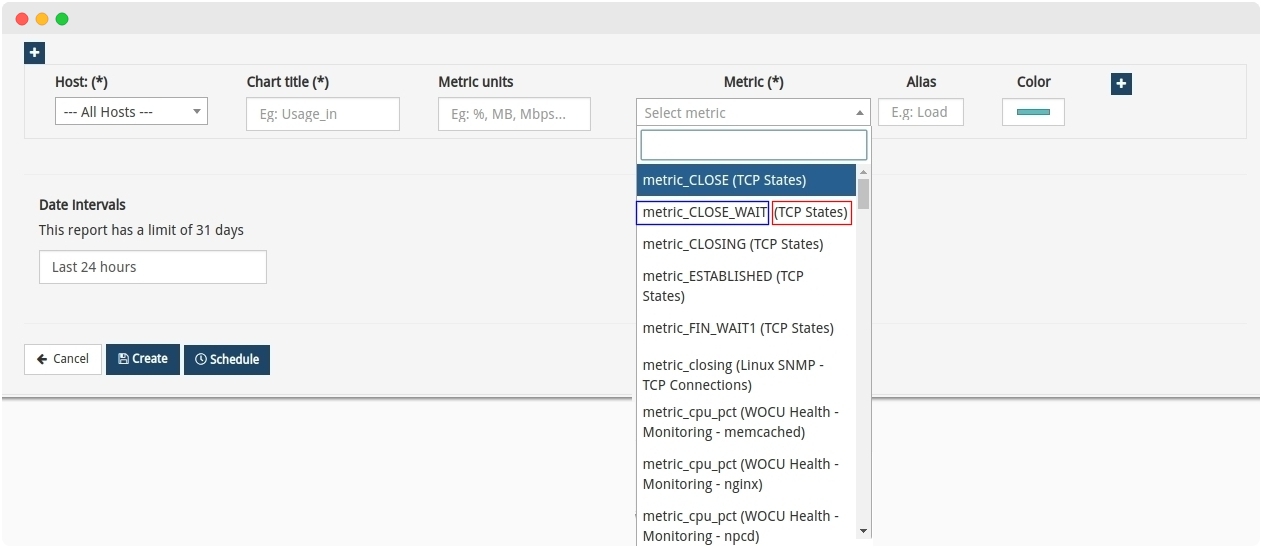
Note
More information can be found at: Configuration and generation of Metrics Evolution Report.
3. CSV import capability of HostsGroups
The CSV_Import task allows the discovery and addition of new Assets to the WOCU database through the reading of a CSV file.
If in previous versions the scope of the task was extended by allowing the discovery of Device Business Processes and Service Business Processes (in addition to Devices and Contacts); this time work has continued on the capability of importing Hosts Groups, as a new type of Asset supported in the task
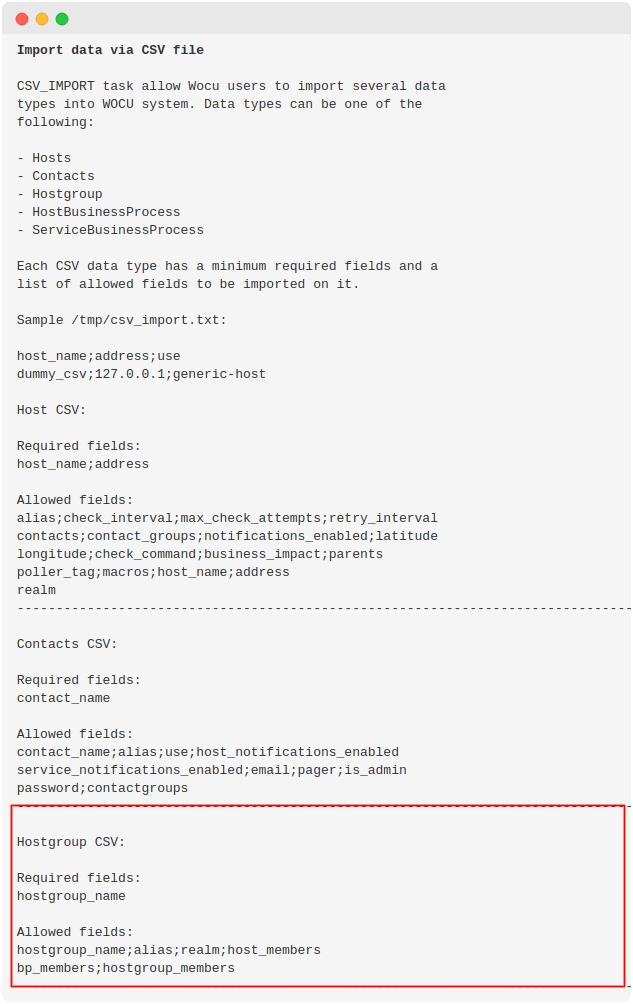
Note
The type of Asset to be imported is automatically ascertained by the system, based on the fields entered in the defined CSV format.
4. Security improvements in session control
Given the inevitable nature and growing trend of security threats and attacks, it is of vital importance to work on reinforcing measures to prevent security breaches and vulnerabilities, in order to mitigate any possible risks that may affect the tool and the user’s privacy.
If in previous versions work was done on the traceability and access blocking, in this new version new measures have been added to prevent session filtering. These are
✓ Verification and validation that the sent session comes from the same IP address where the session was initiated.
✓ Verification and validation that the session sent comes from the same
User-Agentas the user who logged in.
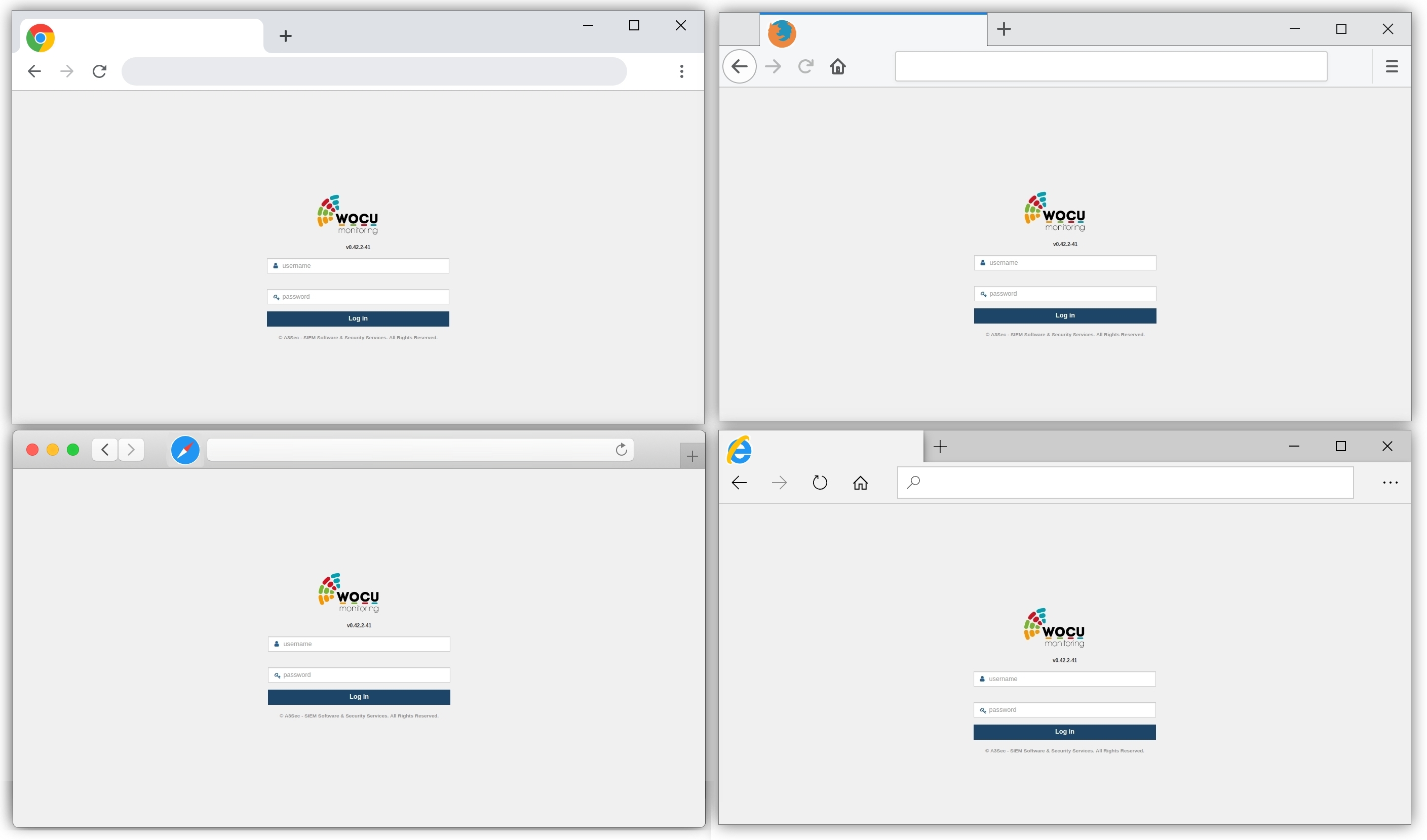
These two checks ensure that if a user’s session is obtained, for example, by a man-in-the-middle attack on an unencrypted connection, it cannot be reused from a different IP address or from a different User-Agent. Upon reuse, the compromised session in question is immediately invalidated.
You can find more information in the following video:
6. Inclusion of macros in Assets endpoints.
In this release, work has been done to include macros (properties used to change the behaviour of Devices when applying Monitoring Packs) in the information provided by the endpoints of Assets, applicable for individual Hosts, Realms and Multi-Realms.
In the endpoint:
GET /api/status/realms/{realm_name}/hosts/{host}/the macros associated with the default Host have been included, as this is very useful information detailing precisely the type of Device and the expected behaviour when applying Monitoring Packs to it.

However, for the following endpoints, the option has been added to include the macros associated to the Realm or Multi-Realm Hosts, through the macros parameter:
GET /api/status/multirealms/{realm_name}/hosts/?macros=TrueGET /api/status/realms/{realm_name}/hosts/?macros=True

Attention
Those macros marked as protected in the configuration (they may include sensitive information such as passwords) will be hidden to maintain the level of security.
Note
For more information on these endpoints see the full WOCU API documentation at: Public API documentation.
7. Migration of widgets to REACT technology
The non-visible part of several widgets has been simplified by migrating them to REACT technology. These are:
Host Problem Location of the Status tab
Mapping Hosts from the Geomap tab.

This change will result in better data visualisation, improved maintainability and responsive visualisation.
Other improvements and fixes
Every new version of WOCU is full of small changes, fixes and optimisations that should be briefly highlighted. We list the most notable ones in this version:
The Events panel has been refactored.
Fixed a bug in the Import Tool task table that prevented the total number of entries being displayed.
Improvements to the validation of the Metrics Evolution Reports creation and configuration form.
Renewal of the design of all tables that are part of the Import-Tool, achieving a more structured and homogeneous view
Fixed a bug in the Top 5 monitoring Events of the Devices modal, which prevented redirection to the Events tab of the same modal
Relocation of the Go to top button, as it sometimes overlapped with other actions or data on the page, thus improving navigation and data reading.
Fixed the behaviour of the Hosts by host Availability table in Availability Reports, adjusting and adapting its size to the number of elements in the table
Optimisation of the data insertion processes in the collectors, eliminating the checking of pre-save configurations when creating or duplicating a Realm.
Fixed a bug in schedule-reports where the configuration set when modifying the name of the associated Realm or Multi-Realm was lost. Now the programming set by the operator is preserved, regardless of the modifications that the Realm may undergo
Fixed bug hiding the author (Creator field) in Reports and Templates listings.
It is now possible to edit Templates that have not been newly designed.
A limit has been set on the maximum number of characters allowed to be entered in all text entries in the interface, in order on the one hand to avoid possible overflows and on the other hand to improve the general usability in the use of all forms.
Fixed a label overlapping bug in the Global Dashboard <docs/operations/2_7_status_panel.html#global-panel>> graphs of the :doc_url:`Status and of the Services-panel modal of the Devices. From this version onwards, you will have to place the cursor over the portion of the graph you want to consult, in order to know the total and percentage values of each monitoring status. This change avoids overlapping values and makes them difficult to read
Fixed a bug in the code that threw a 500 error when accessing the names of the active hostgroups of a Realm via the API, specifically the endpoint
active-host-groups-only-names.Added in both tables of the Import Tasks (Tasks) section of the Import-Tool, the functionality Show Entries, where the number of entries shown in the table is indicated in relation to the total number of entries: Showing 1 to n of N entries (Showing 1 to n of N entries).
Fixed an error when trying to edit any Template created from Top Hosts Reports and Device Inventory Reports.
The action of relaunching Metrics Evolution Reports is available again, generating new reports by updating the existing one.
Fixed a bug in loading the Device Modal Host view due to a problem with the ACLs system as the necessary permissions were not granted
The API Public Aggregator has been optimised by reducing the cache duration time by a lower value.
Fixed a bug in the LoggerHighlighter model after its migration to Python3.
Within the Userrealm section of the Administration module, the spacing between selectors and action buttons to be applied has been edited to avoid overlapping problems.
Fixed automatic data refresh when accessing the Host and Metrics sections of the Device Modal
The system is already able to retrieve Latin characters, including ñ, accents, question marks and exclamation marks in the name and description of Reports.
Upgraded software
Numerous pieces of software integrated into WOCU have been incorporated and updated:
Software |
Previous version |
Current version |
Remarks |
|---|---|---|---|
Python3 |
3.7.7 |
3.7.9 |
New stable version of branch 3.7 |
Python2 |
2.7.17 |
2.7.18 |
New stable version of branch 2.7 |
LMD |
1.9.0 |
1.9.1 |
New stable version fixes a potential race condition when refreshing backends. |
django-sortedm2m-filter-horizontal-widget |
1.2.1 |
1.3.2 |
Updated to work with Django 2.2 |
django-axes |
5.4.1 |
5.7.1 |
Fixed bug in failed login count |
Monitoring packs
See our catalogue of WOCU Monitoring Packs in the following link.
New checkpoint-license and fortinet-license packs
With these new packs, it is possible to discover the licences and contracts installed on Checkpoint and Fortinet devices.
Once discovered, it facilitates the selection of licences and contracts to be monitored, as well as the configuration of WARNING and CRITICAL thresholds that define the alerts to be generated when the expiry time approaches.

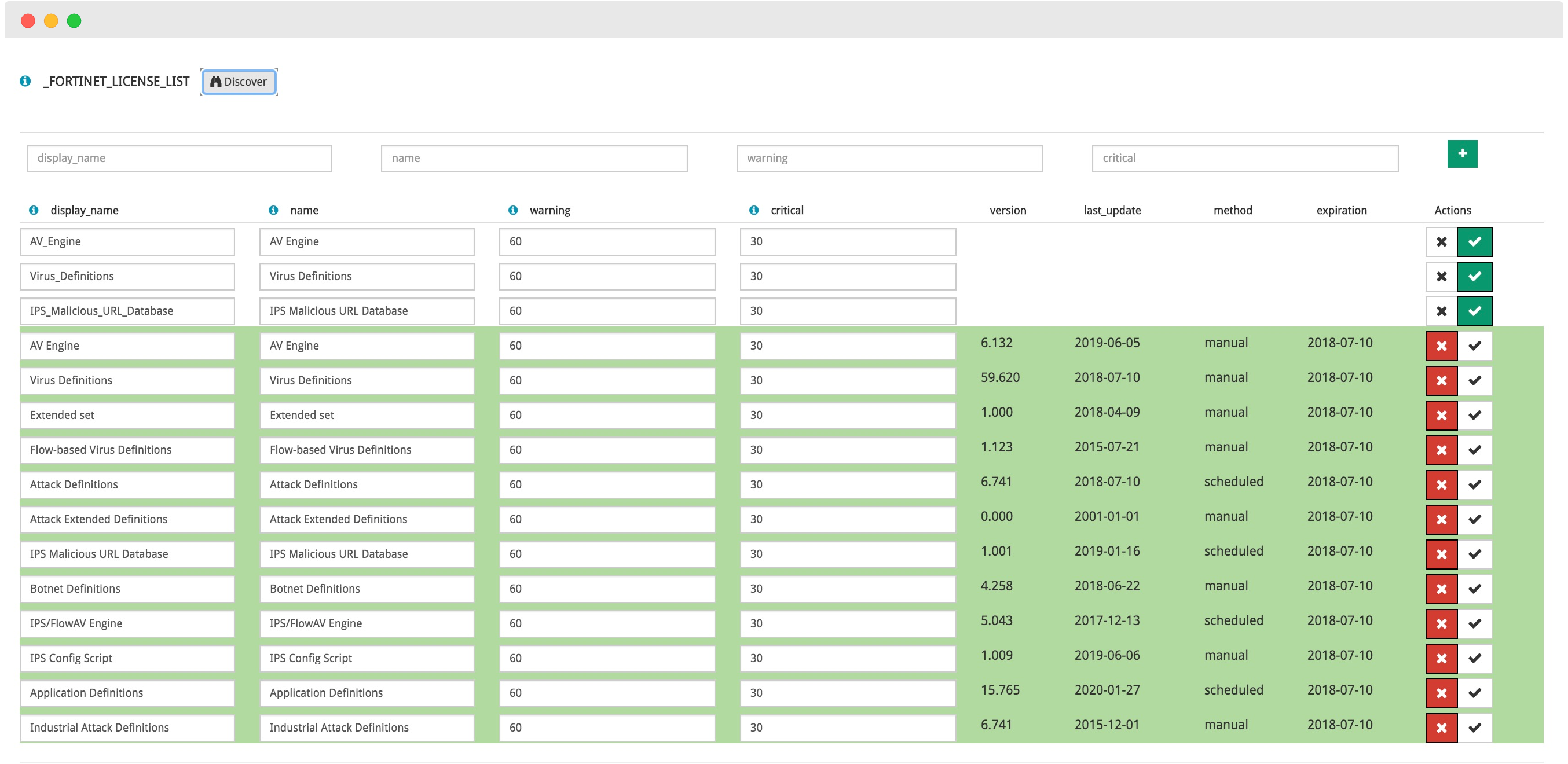


New squid pack
Squid is the most popular free software proxy. Specifically, it is a caching web proxy. Among its utilities are to improve the performance of the connections of companies and individuals to the Internet, caching recurring requests to web servers and DNS, speed up access to a particular web server or add security by filtering traffic.
In this version of WOCU, a new pack has been added to the catalogue to obtain the performance and usage statistics of the proxy service. As well as the generation of alerts when the ratio of failed http requests, the use of the memory pool or the CPU usage of the service exceeds the defined thresholds.
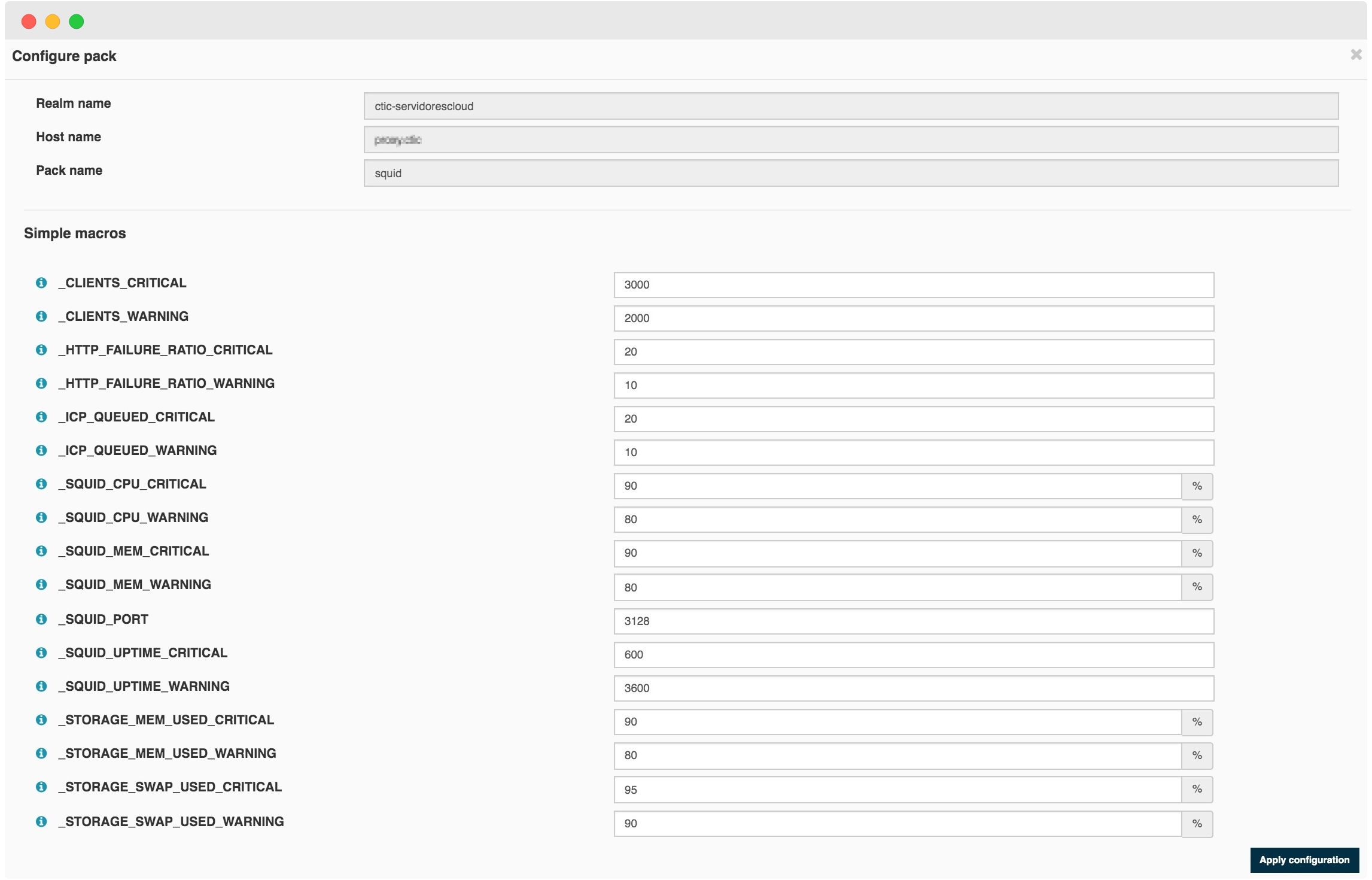

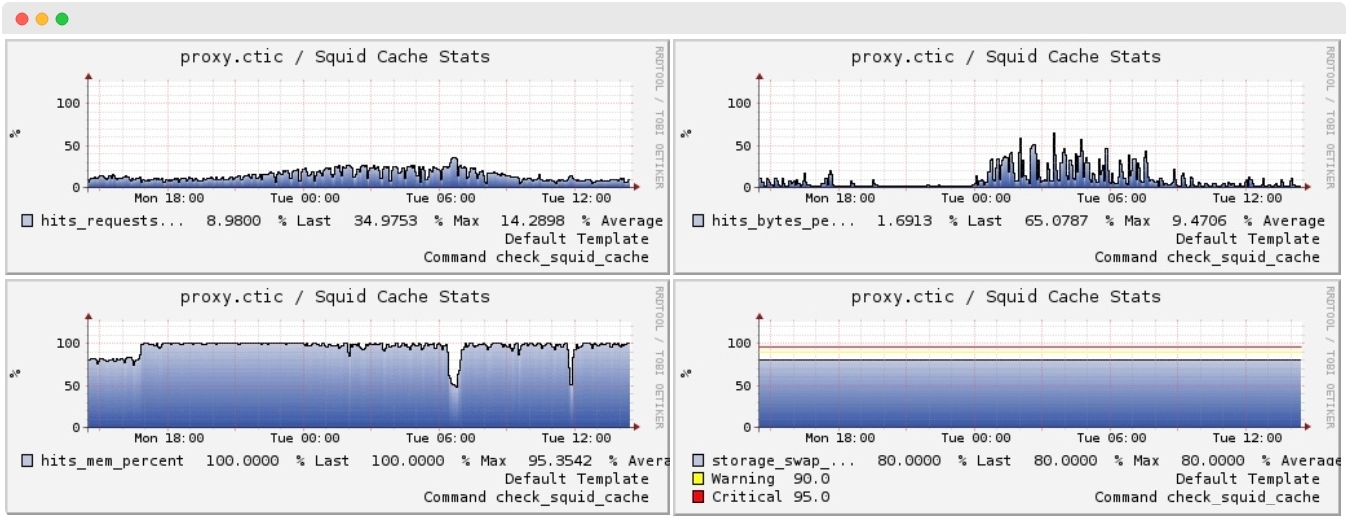
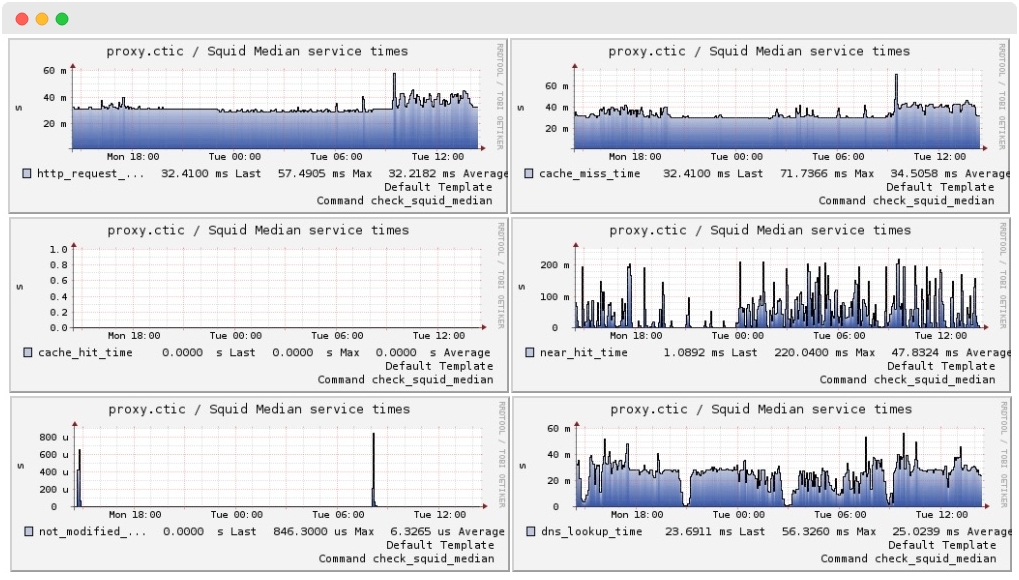
New service in pack sbc-acme-packet.
The pack that obtains health and performance metrics from Oracle’s VoIP devices now features a new service called Call Rate. It reports the number of calls that have occurred between two consecutive checks.

This service overcomes the limitation of monitoring inbound and outbound sessions in realms where the number of sessions is very small, as the instantaneous value queried by the inbound_sessions and outbound_sessions services usually show 0 calls and such realms appear to have no activity.
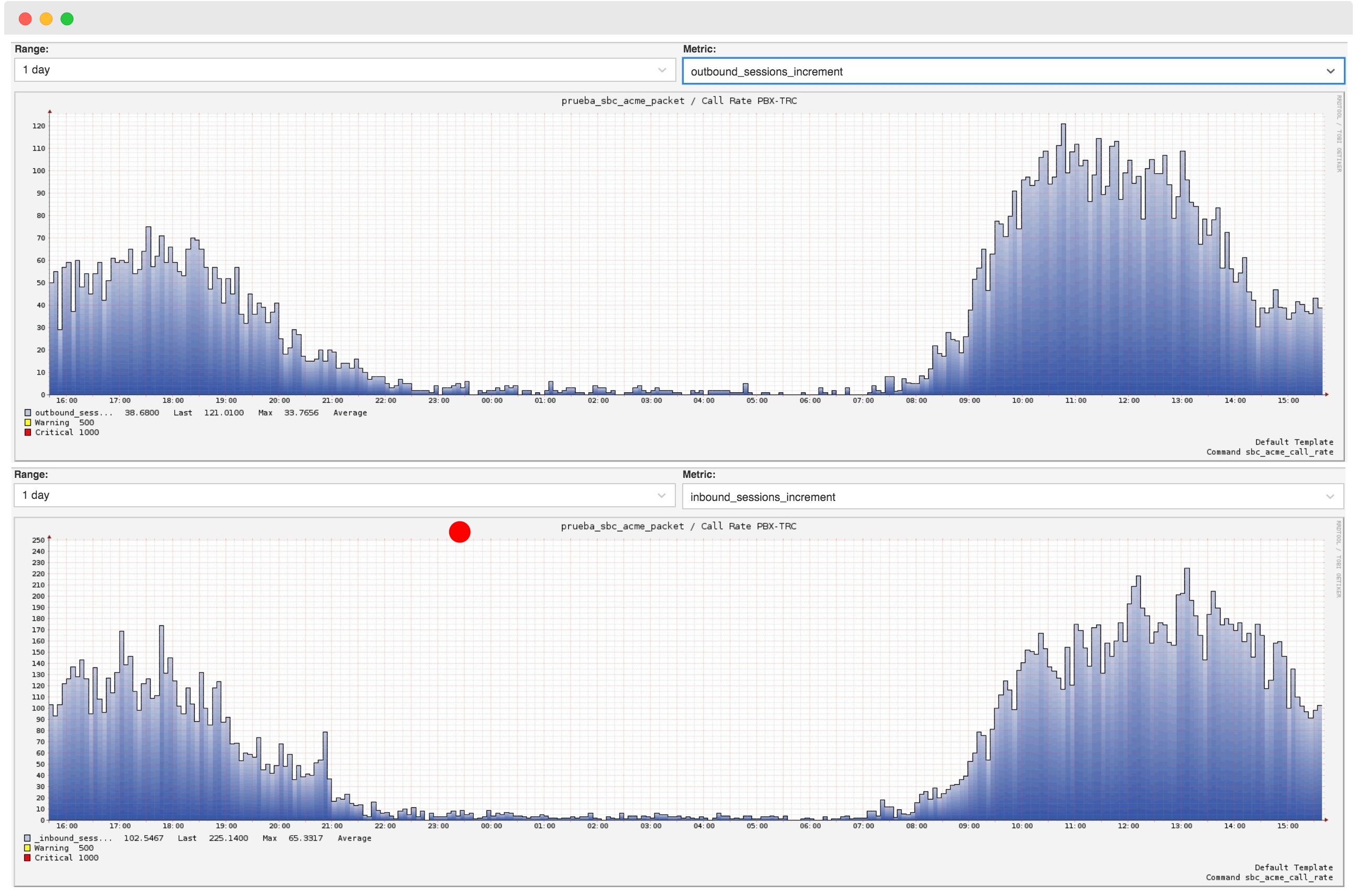
The calculation of rejected sessions in the inbound_sessions and outbound_sessions services has also been modified. This version calculates and compares with thresholds, the increment of rejected sessions between checks and not the total number of sessions as in the previous version.

Finally, new fields have been added to the realms macro. It is now possible to define thresholds for active and rejected sessions in the inbound_sessions and outbound_sessions services.
